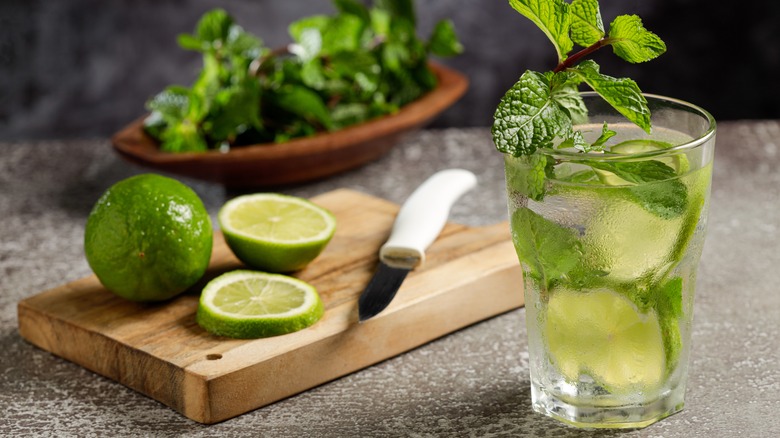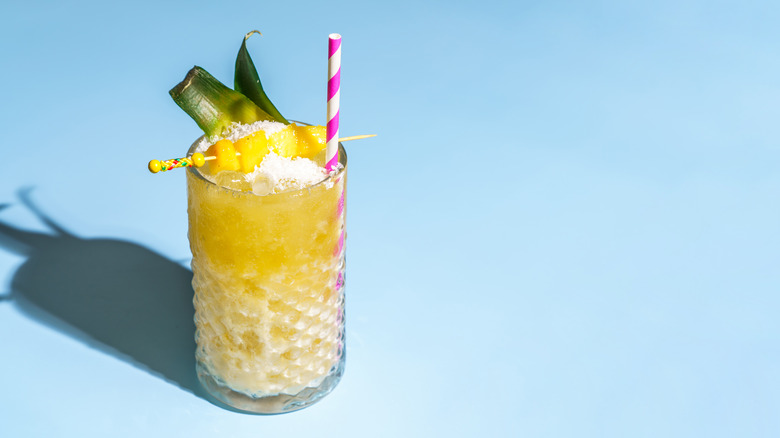Expert Advice For Making Rum Drinks
While bartenders seem to effortlessly combine unique flavors and spirits into drinks that stop you in your tracks, it can feel a bit intimidating to go off book when making your own cocktails. However, if you're a rum fan, don't restrict yourself to boring two-ingredient cocktails that fail to wow. Instead, take a bit of advice from the experts. Cocktail writer and Instagrammer Katie Stryjewski shared her tips for crafting seriously delicious rum drinks with Mashed, and she has a few rules of thumb that are helpful to keep in mind.
You may have heard the saying "if it grows together, it goes together" for wine pairings, which suggests that dishes native to particular regions will likely pair beautifully with wine from that same area. According to Stryjewski, the same notion applies to cocktails, in a sense. Most rum is manufactured in tropical locales, so if you're not sure exactly what non-alcoholic ingredients to opt for in a cocktail, check out the flavor profiles typical to the region where the rum came from. "When classic tropical drinks were first created, especially in the Caribbean, bartenders reached for rum because that was what was available and what people drank. And it works really well!" Elements like coconut, pineapple (which you'll find in classic Mai Tais), guava, lime, mango, and other tropical flavors are almost always delicious when enhanced with a splash of rum, so they're a great place to start.
Keep it fresh — and high quality
Many tropical areas are known for having an abundance of fresh fruit, which makes its way into the dishes of the region — and, hopefully, your cocktail. As Katie Stryjewski recommends, "Use fresh ingredients, always! It really makes a difference in flavor and even texture." Depending on what's available in your area, this may affect the exact ingredients you're able to pair with your rum. For example, if you want to combine your booze with pureed guanábana (the pricey fruit also known soursop), you may have a tough time finding the latter fresh in much of the U.S. without access to a specialty store.
Stryjewski also suggests doing a bit of research about the rum you're buying to make cocktails. After all, the quality and type will affect the final taste (as anyone who has ever compared a top shelf spirit with a bottom-of-the-barrel alternative will likely know well). "Spending a little time to get to know your rum can go a long way," says Stryjewski. "Many rums contain additives, including sugar. But some places (Jamaica, Martinique, and Barbados, for example) don't allow this — probably why those three islands make many of the most coveted rums." If you only have access to some of the basics at your local liquor store, check out our ranking of popular rum brands for a few suggestions.

